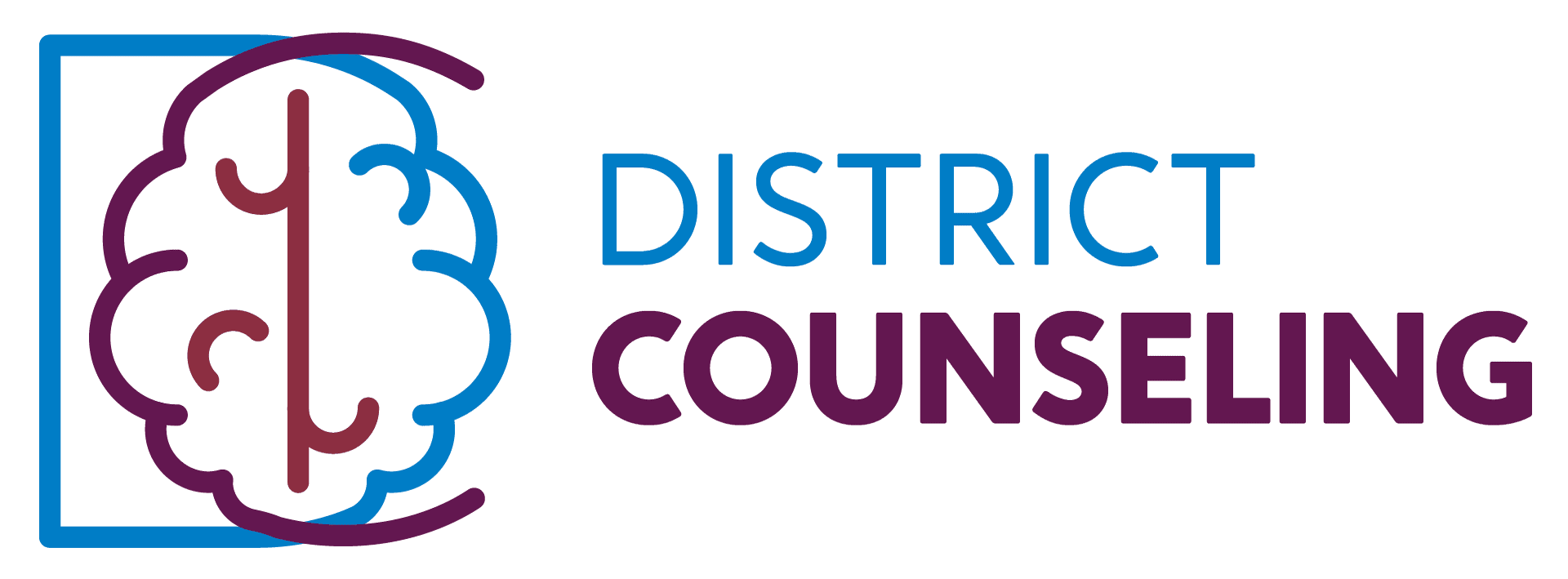Share Post
Relationships are built on trust, respect, and mutual care. However, when emotional abuse enters the dynamic, it can erode self-esteem and leave lasting scars far beyond the visible surface. Emotional abuse can often be difficult to identify, even for those experiencing it, because it doesn’t leave physical evidence and is frequently disguised under manipulative behavior. At District Counseling, we believe awareness is the first step to healing. Here are five signs you may be in an emotionally abusive relationship and guidance on what to do next.
1. Constant Criticism and Belittling
Everyone makes mistakes, and occasional constructive feedback is normal in relationships. However, emotional abuse takes critique to the extreme, turning it into constant criticism designed to tear you down.
Examples of this include:
- Name-calling or insults: Your partner uses degrading language to describe you.
- Mocking or condescension: They rudely laugh at or dismiss your opinions and feelings.
- Excessive blame: You are made to feel responsible for anything that goes wrong, even if it’s outside your control.
This erosion of confidence often causes victims to second-guess themselves, leading to a cycle of dependency on the abuser’s approval. Ask yourself if their words lift you up or consistently bring you down.
2. Controlling Behavior
Control is a hallmark of emotional abuse. The abuser uses manipulation, guilt, or fear to limit your autonomy and freedom. This can manifest in many ways, including:
- Monitoring: They constantly check up on your phone, social media, or whereabouts.
- Isolation: They discourage you from spending time with friends or family.
- Decision-making: They override your choices about major or minor decisions, leaving you feeling powerless.
Control tactics often masquerade as care or concern, such as statements like, “I just worry about you,” or “I’m doing this because I love you.” However, true love supports your independence, not undermines it.
3. Dismissing or Minimizing Your Feelings
A key trait of emotional abuse is the dismissal of your emotions. Instead of listening, an emotionally abusive partner may:
- Gaslight: They deny your experiences or feelings, causing you to question your reality.
- Downplay issues: They say things like, “You’re overreacting,” or, “It’s not a big deal.”
- Shift blame: They make you feel guilty for expressing your emotions by saying you’re being “too sensitive” or “difficult.”
This chronic invalidation can make you doubt your instincts and foster a sense of confusion or self-blame.
4. Unpredictable Mood Swings
An emotionally abusive partner may flip between extreme anger and affection, leaving you constantly walking on eggshells.
This behavior might include:
- Explosive reactions: They lash out unexpectedly over minor issues or perceived slights.
- Drastic mood shifts: One moment, they’re loving and attentive; the next, dismissive or hostile.
- Manipulative apologies: They may justify their anger with excuses or quick, insincere apologies to avoid consequences.
These mood swings create an unstable environment, which makes it difficult for you to establish boundaries or feel secure in the relationship.
5. Emotional Withholding as Punishment
Silent treatments and withholding affection are common tools in emotional abuse. This involves punishing you by withdrawing emotionally, such as:
- Stonewalling: Refusing to talk to you or ignoring your presence.
- Withholding love: Keeping affection, compliments, or intimacy out of reach until you comply with their demands.
- Using guilt: They make you feel unworthy of their love, tying their approval to conditional behavior.
Healthy relationships involve open communication, not manipulation through emotional withdrawal. If you feel like you’re always walking a tightrope to “earn” back your partner’s kindness, it may be time to examine the underlying dynamics.
What to Do If You Recognize These Signs
Identifying emotional abuse is challenging but empowering. The next steps involve prioritizing your well-being and, if possible, seeking professional guidance. Here’s what you can do:
- Confide in Someone You Trust: Share your experiences with a friend or family member who can provide outside perspective and support.
- Educate Yourself: Learn more about the dynamics of emotional abuse to affirm that your feelings are valid.
- Set Boundaries: Clearly communicate what behaviors you will not tolerate. If the abuse continues, it may be time to consider ending the relationship.
- Seek Professional Help: Therapy provides a safe space to process your emotions, rebuild confidence, and create a plan for moving forward.
At District Counseling, we are committed to helping individuals and couples break free from abusive patterns and build healthier connections. Whether you’re experiencing emotional abuse yourself or want to support a loved one, therapy can provide clarity and healing.
You Deserve a Healthy Relationship
No one deserves to feel diminished, controlled, or invalidated in a relationship. If you recognize these signs and feel ready to take the first step toward change, help is available.
At District Counseling, we offer both individual therapy for personal healing and couples therapy to address and transform relationship dynamics. Our compassionate team of therapists is here to guide you every step of the way.
🌟 Call us today at 346-800-7601 or visit District Counseling to schedule your appointment.
Take the first step toward the healthy, fulfilling relationship you deserve. Help is just a call away.

Arely Ambriz
November 24, 2025
The Gavel Falls on a New Week: How to Lead Your Own New Beginning
Start your week with intention. Learn how to set goals, build a strong support system, and find professional mental health resources like psychiatry and counseling in Texas to navigate life’s...

Arely Ambriz
November 21, 2025
Beyond the Twinkling Lights: Is Your Work-Life Balance Up for Sale?
In Riverside, California, a beloved tradition is set to illuminate the city this weekend. The Mission Inn’s Festival of Lights, an event that draws...

Development Funnel Boost Media
November 20, 2025
10 Signs You’re Emotionally Exhausted (and What to Do About It)
Emotional exhaustion can creep up slowly — or hit all at once. You might still be functioning, going to work, taking care of your...

Arely Ambriz
November 20, 2025
Beyond the Buzz: Can Our Relationships Survive the AI Revolution?
Explore how AI impacts relationships, communication, and connection in an automated world. Learn practical tips for nurturing bonds at home, work, and with your children....

Arely Ambriz
November 19, 2025
Can’t Look Away? Your Mid-Week Guide to Managing Headline Stress
Feeling anxious and overwhelmed by the news? Learn why the mid-week news cycle feels so draining and discover practical tips to stay informed without sacrificing your mental health....

Arely Ambriz
November 18, 2025
The Hidden Ledger: Balancing Ambition and Burnout on National Entrepreneur’s Day
Feeling the “founder mindset” leading to burnout? Discover actionable steps, like our “Energy Audit,” to reclaim your mental health and achieve a healthier work-life balance....

Arely Ambriz
November 17, 2025
Beyond the Signal: Charting Your Own Path to a New Beginning
Feeling disconnected? Learn how to build your inner infrastructure for a new beginning. Discover actionable steps and the importance of professional support for mental health, including therapy and psychiatry in...

Arely Ambriz
November 14, 2025
Houston, We Have a Weekend: Navigating Your Final Descent into Work-Life Balance
Discover how global crises impact your well-being and learn practical grounding techniques like 5-4-3-2-1 to manage anxiety and compassion fatigue in a fast-paced world....

Arely Ambriz
November 13, 2025
Beyond ‘Please’ and ‘Thank You’: How World Kindness Day Reveals the Secret to a Stronger Relationship
Discover how global crises impact your well-being and learn practical grounding techniques like 5-4-3-2-1 to manage anxiety and compassion fatigue in a fast-paced world....

Arely Ambriz
November 12, 2025
Finding Your Footing When the World Feels Heavy
Discover how global crises impact your well-being and learn practical grounding techniques like 5-4-3-2-1 to manage anxiety and compassion fatigue in a fast-paced world....
